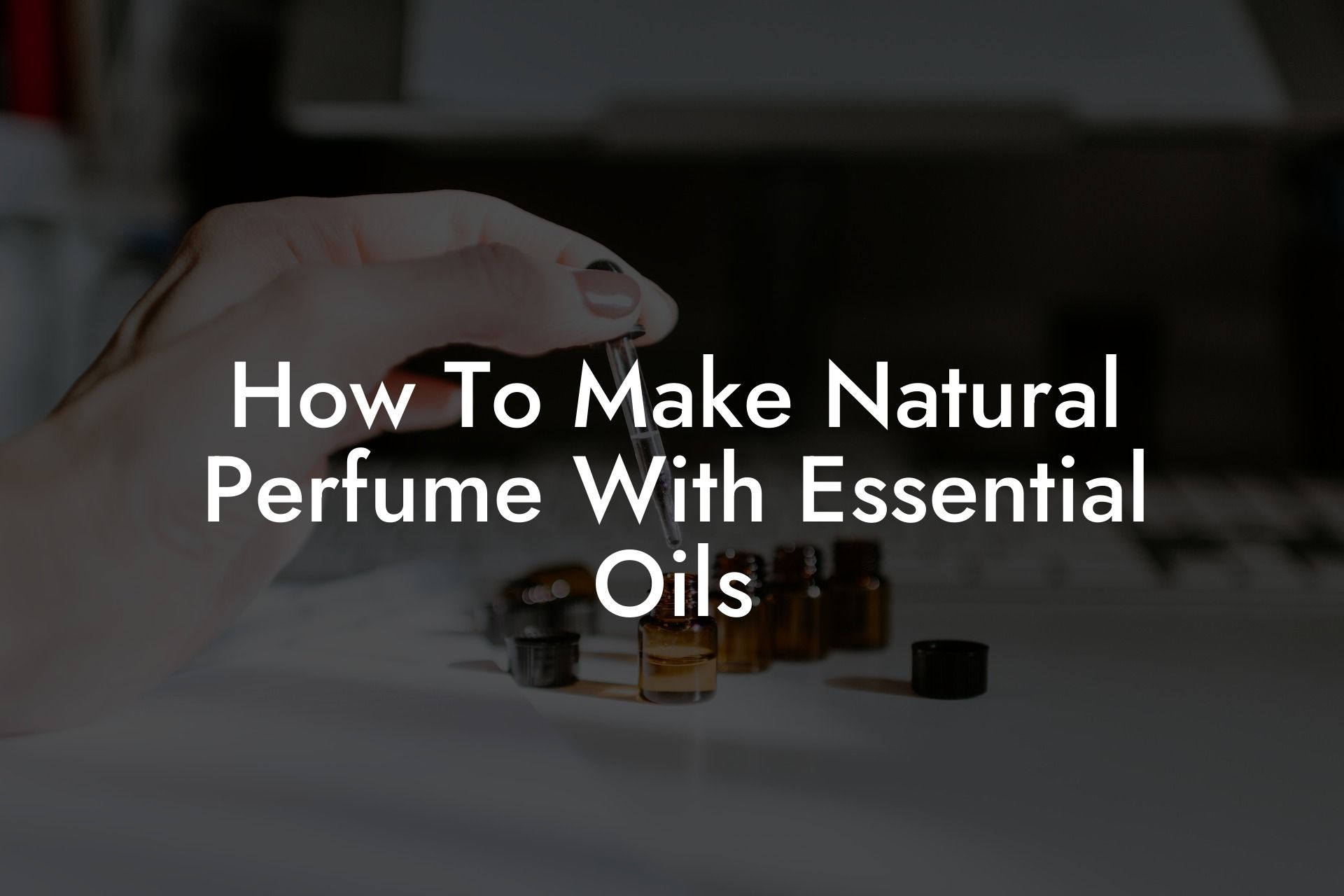The art of perfumery dates back to ancient times, with people using essential oils and botanical ingredients to create captivating scents that evoke feelings of pleasure and wellbeing. In today’s modern world, many commercial perfumes are often packed with synthetic fragrances, which may not be ideal for those seeking a more natural and eco-friendly alternative. Enter the realm of natural perfumery, where you can craft your unique scent using the magical world of essential oils. In this guide, we’ll explore the art of making natural perfume with essential oils, delving into the benefits, techniques, and steps you need to create your bespoke aromatic blends.
Table of Contents
Why Make Natural Perfume with Essential Oils?
Using essential oils for perfumery bears numerous benefits when compared to synthetic fragrances. These include:
- Natural and eco-friendly: Essential oils are derived from plant materials without the use of synthetic chemicals or additives, making them a more environmentally friendly choice.
- Therapeutic effects: Many essential oils possess therapeutic properties that can benefit our emotional and physical wellbeing when inhaled or absorbed into the skin.
- Customizable scents: Creating natural perfume allows you to craft your unique scent profile, harnessing the vast array of essential oils available.
Understanding the Perfume Pyramid
When creating a balanced and well-rounded perfume, it’s crucial to understand the concept of the perfume pyramid, which consists of three layers: top notes, middle notes, and base notes.
- Top notes: These are the first scents you perceive when smelling a perfume, usually light, volatile, and quick to evaporate. Examples of top note essential oils include citrus oils, such as lemon, lime, grapefruit, and bergamot.
- Middle notes: Often referred to as the ‘heart’ of the perfume, middle notes are more complex and longer-lasting than top notes. They emerge after the top notes evaporate and help create the character of the perfume. Popular middle note essential oils include lavender, geranium, chamomile, and rosemary.
- Base notes: These are the longest-lasting scents within the perfume, providing a lasting impression and depth. They also act as fixatives, helping slow down the evaporation of top and middle notes. Examples of base note essential oils are patchouli, sandalwood, cedarwood, and musk.
Choosing the Right Carrier Oil
Carrier oils are essential when creating natural perfumes, as they help dilute the essential oils and make them safe for topical application. Some popular carrier oils include:
- Jojoba oil: A light, non-greasy oil that closely resembles the skin’s sebum. It has a long shelf life and is suitable for all skin types.
- Sweet almond oil: A nourishing and moisturizing oil that is gentle and suitable for sensitive skin.
- Grapeseed oil: A lightweight oil with a neutral scent, excellent for use in perfumes due to its low impact on the overall scent profile.
Creating Your Natural Perfume
To make your natural perfume with essential oils, follow these steps:
- Select your essential oils: Choose a harmony of top, middle, and base note essential oils that reflect your desired scent profile and emotional or therapeutic intentions.
- Blend the oils: Start by blending the chosen essential oils in a glass container. Begin with small amounts, particularly for the more potent base notes. Test the scent on a paper strip to assess the balance of notes and adjust accordingly. It’s essential to let the blend sit for at least 24 hours to allow the scents to meld.
- Dilute and bottle: Mix the essential oil blend with your preferred carrier oil, using a ratio of roughly 10-20% essential oils to 80-90% carrier oil. Transfer the diluted mixture into a glass rollerball or spray bottle for convenient and portable application.
How To Make Natural Perfume With Essential Oils Example:
Imagine you want to create a fresh, uplifting, and confidence-boosting perfume. You might select the following essential oils:
- Top notes: Bergamot and sweet orange (Invigorating and mood-lifting)
- Middle notes: Rosemary and geranium (Balancing, clarifying and confidence-boosting)
- Base notes: Patchouli and cedarwood (Grounding and stabilizing)
Blend these oils, adjusting the quantities to your preference, then let the blend rest. After 24 hours, dilute your mixture with a carrier oil, such as jojoba, and transfer into a glass bottle for daily use.
Crafting your natural perfume with essential oils unlocks the door to endless possibilities and a world of personalized scents that benefit not only your olfactory senses but also your wellbeing. Ready to embark on your aromatic journey? Explore Oshu Oils’ range of essential oils and our comprehensive guides on essential oils & aromacology. We hope this information inspires you to create scents that will captivate, soothe, and uplift. Don’t forget to share this article with fellow natural scent enthusiasts and join the conversation about nature’s aromatic wonders.





















